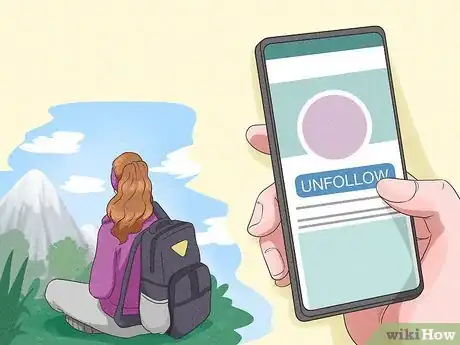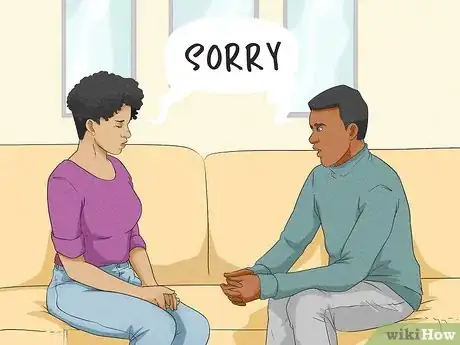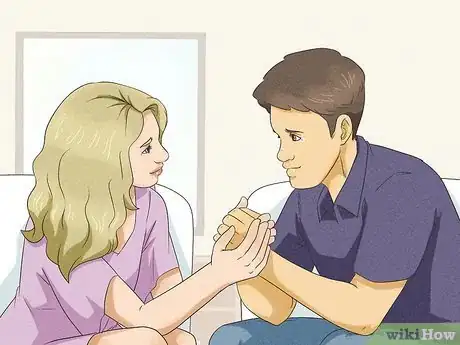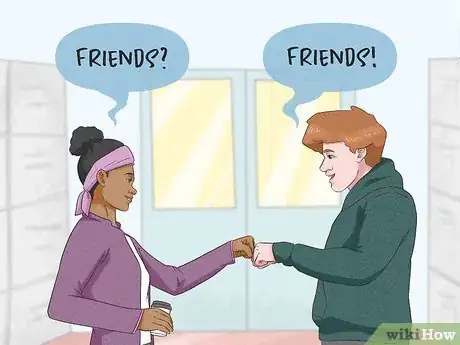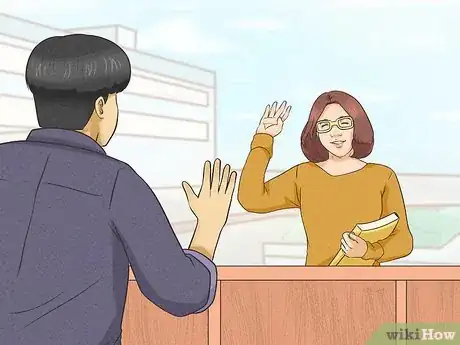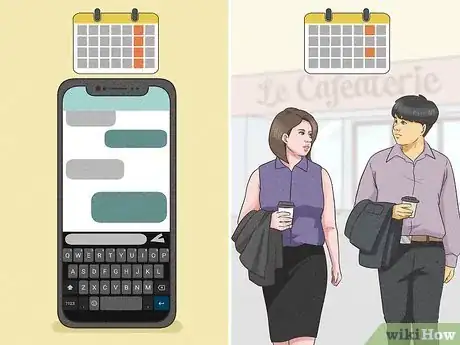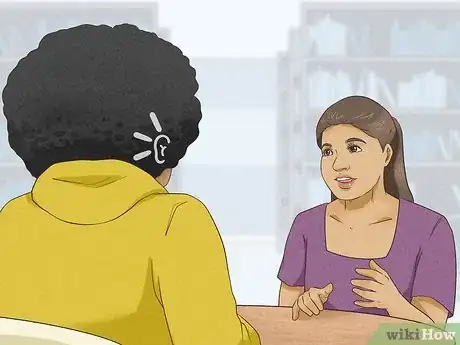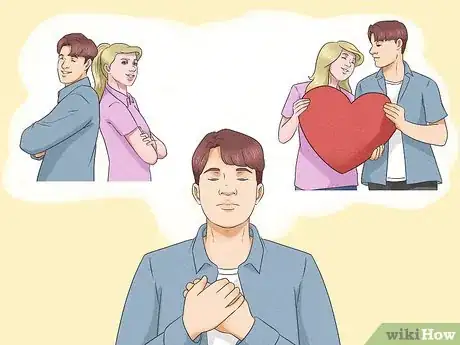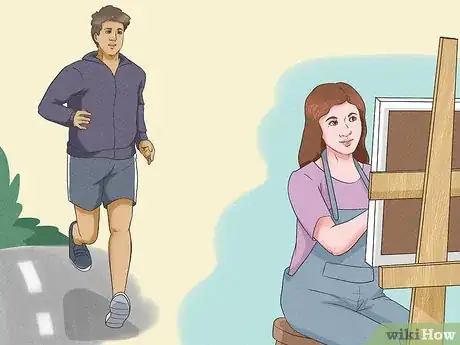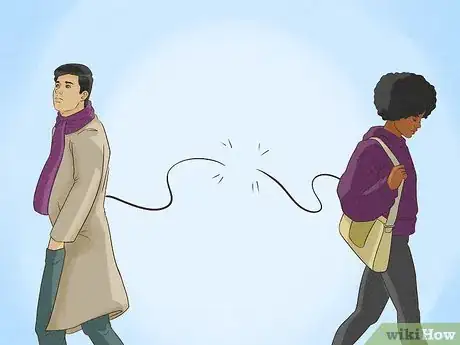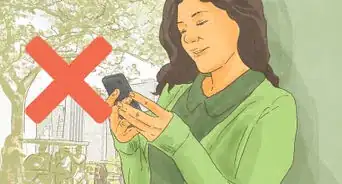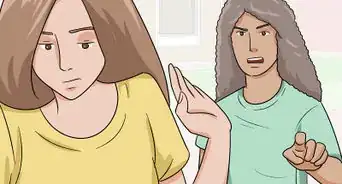This article was co-authored by Amy Chan and by wikiHow staff writer, Megaera Lorenz, PhD. Amy Chan is a Relationship Coach and the Founder of Renew Breakup Bootcamp, a retreat that takes a scientific and spiritual approach to healing after the end of a relationship. Her team of psychologists and coaches has helped hundreds of individuals in just five years of operation, and the Bootcamp has been featured on CNN, Vogue, the New York Times, and Fortune. She has published a book on her work, Breakup Bootcamp.
There are 8 references cited in this article, which can be found at the bottom of the page.
This article has been viewed 65,381 times.
When you’ve just gone through a bad breakup, you might feel pretty discouraged about having any kind of future with your ex. But the good news is, friendship is still possible—if you’re both willing to work hard at it. We’ll walk you through a few tips to help you move forward and have a healthy friendship with your ex, even if things ended on a bad note.
Steps
Expert Q&A
Did you know you can get premium answers for this article?
Unlock premium answers by supporting wikiHow
-
QuestionHow long does it take to get over a bad breakup?
 Amy ChanAmy Chan is a Relationship Coach and the Founder of Renew Breakup Bootcamp, a retreat that takes a scientific and spiritual approach to healing after the end of a relationship. Her team of psychologists and coaches has helped hundreds of individuals in just five years of operation, and the Bootcamp has been featured on CNN, Vogue, the New York Times, and Fortune. She has published a book on her work, Breakup Bootcamp.
Amy ChanAmy Chan is a Relationship Coach and the Founder of Renew Breakup Bootcamp, a retreat that takes a scientific and spiritual approach to healing after the end of a relationship. Her team of psychologists and coaches has helped hundreds of individuals in just five years of operation, and the Bootcamp has been featured on CNN, Vogue, the New York Times, and Fortune. She has published a book on her work, Breakup Bootcamp.
Relationship Coach
-
QuestionWhy does breaking up hurt so badly?
 Amy ChanAmy Chan is a Relationship Coach and the Founder of Renew Breakup Bootcamp, a retreat that takes a scientific and spiritual approach to healing after the end of a relationship. Her team of psychologists and coaches has helped hundreds of individuals in just five years of operation, and the Bootcamp has been featured on CNN, Vogue, the New York Times, and Fortune. She has published a book on her work, Breakup Bootcamp.
Amy ChanAmy Chan is a Relationship Coach and the Founder of Renew Breakup Bootcamp, a retreat that takes a scientific and spiritual approach to healing after the end of a relationship. Her team of psychologists and coaches has helped hundreds of individuals in just five years of operation, and the Bootcamp has been featured on CNN, Vogue, the New York Times, and Fortune. She has published a book on her work, Breakup Bootcamp.
Relationship Coach Mourning the loss of a relationship can feel much like grieving someone who has passed away. There are various stages of separation - from shock, denial, depression, anger, bargaining, relapse and acceptance. Healing from a heartbreak is not one linear line. After a heartbreak your body is in a state of shock. The person that you were used to talking to, cuddling with, bickering with, having sex with - is no longer there. The loss will feel lonely and scary, and on a scientific standpoint, you’re no longer getting your doses of dopamine and oxytocin (feel-good chemicals) from your partner. While on a logical level, your mind tells you it’s over, your body is craving the chemical fix and this is what causes the urge to get back together, contact the ex, stalk your ex’s social media or text them.
Mourning the loss of a relationship can feel much like grieving someone who has passed away. There are various stages of separation - from shock, denial, depression, anger, bargaining, relapse and acceptance. Healing from a heartbreak is not one linear line. After a heartbreak your body is in a state of shock. The person that you were used to talking to, cuddling with, bickering with, having sex with - is no longer there. The loss will feel lonely and scary, and on a scientific standpoint, you’re no longer getting your doses of dopamine and oxytocin (feel-good chemicals) from your partner. While on a logical level, your mind tells you it’s over, your body is craving the chemical fix and this is what causes the urge to get back together, contact the ex, stalk your ex’s social media or text them. -
QuestionWhat is considered a "bad break up"?
 wikiHow Staff EditorThis answer was written by one of our trained team of researchers who validated it for accuracy and comprehensiveness.
wikiHow Staff EditorThis answer was written by one of our trained team of researchers who validated it for accuracy and comprehensiveness.
Staff Answer wikiHow Staff EditorStaff Answer
wikiHow Staff EditorStaff Answer
References
- ↑ https://time.com/5320054/stay-friends-with-ex-expert-advice/
- ↑ https://greatergood.berkeley.edu/article/item/the_three_parts_of_an_effective_apology
- ↑ https://greatergood.berkeley.edu/article/item/eight_keys_to_forgiveness
- ↑ https://www.psychologytoday.com/us/blog/the-blame-game/201510/forgive-me-forgive-me-not
- ↑ https://www.washingtonpost.com/news/soloish/wp/2017/04/06/when-you-should-and-shouldnt-stay-friends-with-an-ex/
- ↑ https://www.psychologytoday.com/us/blog/in-love-and-war/201405/the-10-worst-reasons-stay-friends-your-ex
- ↑ https://time.com/5320054/stay-friends-with-ex-expert-advice/
- ↑ https://time.com/5320054/stay-friends-with-ex-expert-advice/
- ↑ https://www.helpguide.org/articles/relationships-communication/making-good-friends.htm
- ↑ https://time.com/5320054/stay-friends-with-ex-expert-advice/
- ↑ https://www.psychologytoday.com/us/blog/in-love-and-war/201405/the-10-worst-reasons-stay-friends-your-ex
- ↑ https://headspace.org.au/young-people/how-to-get-over-a-relationship-breakup/
- ↑ https://time.com/5320054/stay-friends-with-ex-expert-advice/
